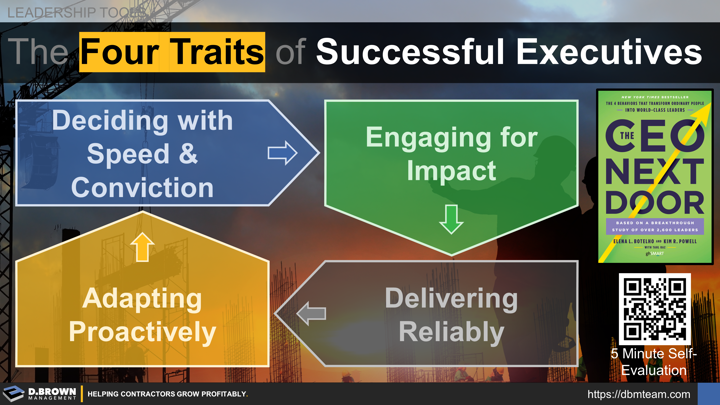The ghSMART company conducted research on over 2,000 leaders, correlating detailed notes from the candidate screening process, which included interviews and reference checks with their actual results as leaders.
These were the four major traits that predicted success:
- Deciding with speed and conviction - good executives realize that a wrong decision may be better than no decision at all. Make decisions effectively and at the last responsible moment. Know that additional information often increases confidence more than it improves results and that over-confidence is dangerous. Don't change a good decision-making process based solely on bad results.
- Engaging for impact - nothing is accomplished alone and dictating orders without engagement fails.
- Adapting proactively - especially when conditions are changing rapidly, such as during the COVID shut-down and post-COVID recession.
“It is not the strongest of the species that survives, nor the most intelligent; it is the one most adaptable to change.”
- Delivering reliably - predictability and profitability are related. You must have a foundation of predictability before you can truly become productive and scale. Reliability builds trust with your team and trust is the foundation of a high-performing team.
As you are looking at your team and making decisions about your future-state organizational structure, these resources will be helpful for assessing and developing your team:
Article, Book, and Web Resources
- What Sets Successful CEOs Apart
- The CEO Next Door - The 4 Behaviors that Transform Ordinary People into World-Class Leaders Based on Breakthrough Study of Over 2,000 Leaders
- Who: The A Method for Hiring
- The CEO Genome Project - 5 Minute Assessment
- Why Some Executives Perform Better Than Others (32 minute video)

